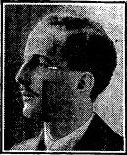Arthur Lawrence Hobhouse
| Sir Arthur Hobhouse | |
|---|---|

Arthur Hobhouse
|
|
| Born |
Arthur Lawrence Hobhouse 15 February 1886 |
| Died | 20 January 1965 (aged 78) |
| Nationality | British |
| Education | Eton College |
| Alma mater |
St Andrews University Trinity College, Cambridge |
| Occupation | solicitor, politician |
| Known for | MP, Chairman, National Parks Committee |
| Spouse(s) | Konradin Huth Jackson |
| Children | Elizabeth Hobhouse Henry Hobhouse (author) Paul Hobhouse Mary Hermione Hobhouse |
| Parent(s) | Henry Hobhouse (MP) |
| Relatives |
Stephen Henry Hobhouse (brother) Penelope Chichester-Clark (daughter-in-law) Frederick Huth Jackson (father-in-law) |
Sir Arthur Lawrence Hobhouse (15 February 1886 – 20 January 1965) was a long-serving English local government Liberal politician, who is best remembered as the architect of the system of National parks of England and Wales.
Hobhouse was the son of the prominent Liberal politician and MP Henry Hobhouse and the brother of peace activist, prison reformer, and religious writer Stephen Henry Hobhouse. Arthur Hobhouse was educated at Eton College, St Andrews University and Trinity College, Cambridge, where he graduated in Natural Sciences. At Cambridge, he was a Cambridge Apostle and a member of the Cambridge University Liberal Club, becoming Secretary in 1906 and was also the lover of John Maynard Keynes and Duncan Grant.
Hobhouse practised as a solicitor until the outbreak of World War I, when he joined the British Expeditionary Force. After the War he joined the Claims Commission, dealing with claims against Allied forces in the Abbeville area, and rose to the rank of Staff Captain. Returning to civilian life, Hobhouse took to farming on a family estate in Somerset.
He stood as Liberal candidate for Wells at the 1922 General Election when he finished a strong second. He was elected Member of Parliament for Wells at the 1923 General Election but lost the seat in 1924. He failed to regain Wells in 1929.
...
Wikipedia
